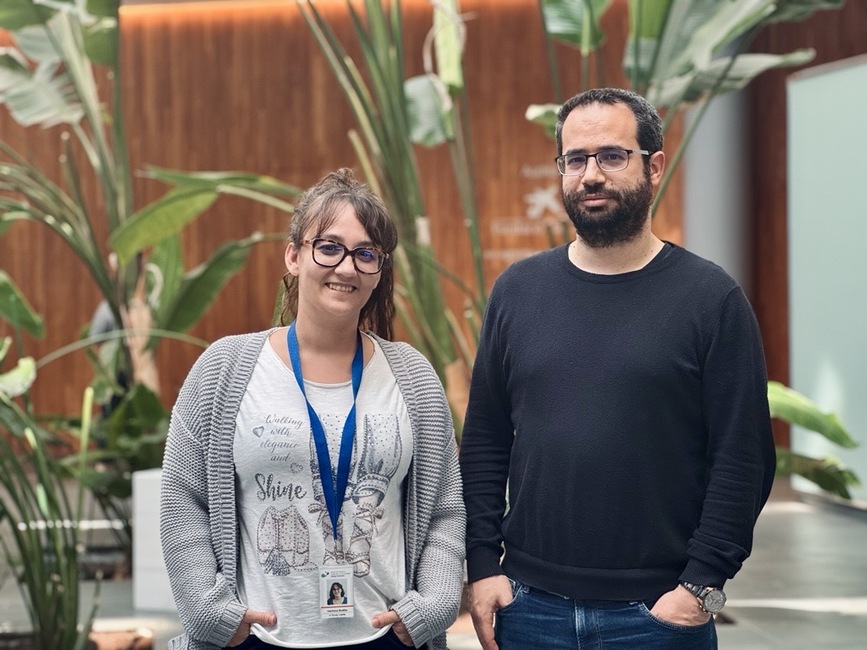Verónica Rodilla and José L. Sardina receive the Research Consolidation grant from the Spanish State Research Agency
The Spanish State Research Agency has published the final resolution of the Research Consolidation grants, a highly competitive call, aimed at supporting and strengthening the research career of leading scientists. Thanks to these grants, Dr Veronica Rodilla and Dr. José L Sardina, group leaders at the Josep Carreras Leukaemia Research Institute, will conduct their innovative research projects.

The Research Consolidation grants are a highly competitive call of the Spanish State Research Agency which aim at fostering, recognising and consolidating lines of cutting-edge research by financing R&D+i (Research, Development and Innovation) projects. The ultimate goal of this call is to promote the long-term career development of outstanding national and international researchers by encouraging the creation of permanent positions, enabling them to pursue their work within the Spanish Science, Technology and Innovation System (SECTI).
The researchers of the Josep Carreras Institute Dr Veronica Rodilla, group leader of the Cancer heterogeneity and hierarchies, and Dr José L Sardina, group leader of the Epigenetic control of haematopoiesis, are among the awardees of these prestigious research grants. These are the innovative research projects they will lead:
Mapping cell identity to personalize treatment
Dr Veronica Rodilla and her team will work to improve how patients are diagnosed and treated by exploring the unique characteristics of different cell types. Using cutting-edge technologies, such as single-cell analysis and advanced genetic tools, they will identify new biological markers—molecular “tags”—that can help detect disease more precisely and guide the selection of personalized treatment strategies. By better understanding how cellular identity influences the development and behaviour of aggressive diseases, this research aims to open the door to more effective therapies and improved outcomes for patients in the future.
Understanding epi-drugs’ side effects
Dr Jose Luis Sardina’s lab will focus on understanding the side effects after treatment with epigenetic drugs against Acute Myeloid Leukaemia (AML). These treatments, while successful in terms of improving AML survival, are associated with severe side effects including Differentiation Syndrome (DS), anaemia, or thrombocytopenia. Dr Sardina’s approach will treat human AML cells implanted in mice with frontline epi-drugs and monitor the events that trigger side effects, linking them with abnormal DNA methylation patterns. The team will use the recent epigenome editing technology, based on the CRISPR-Cas9 system, to validate these links and use aberrant methylation as a biomarker to predict future side effects after epi-drug treatments.